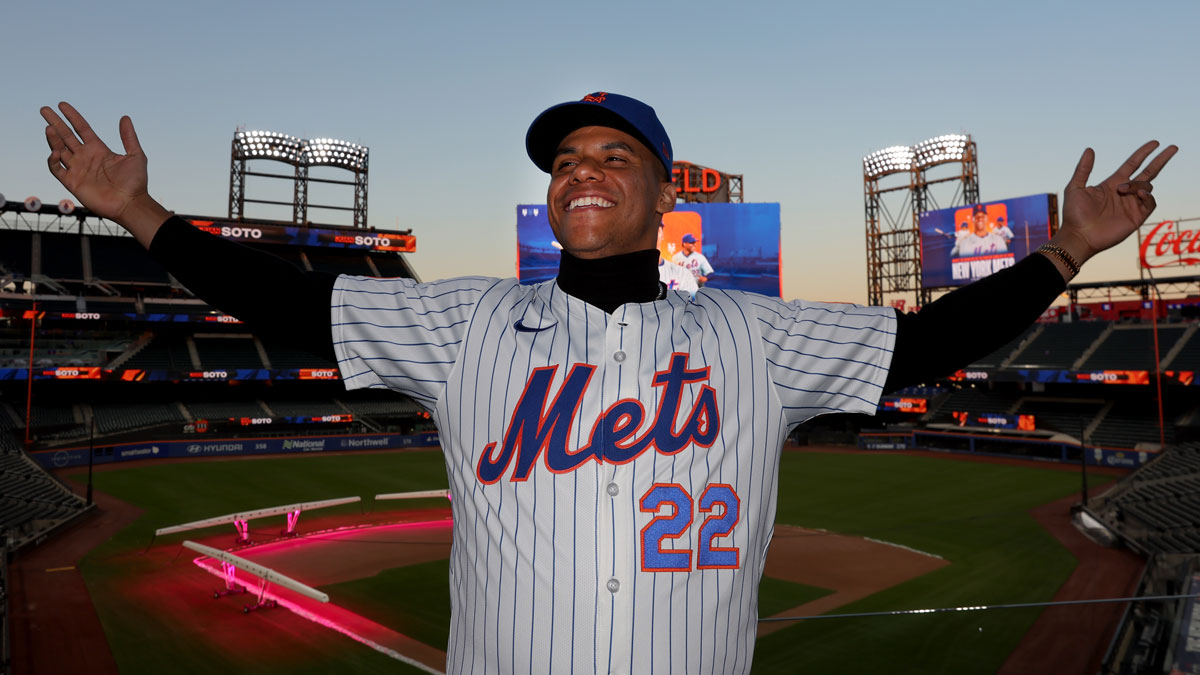FTC Shifts Focus To Defense In Meta Monopoly Trial

Table of Contents
The FTC's Initial Claims and Challenges
The FTC lawsuit against Meta initially alleged that the social media giant illegally maintained its monopoly through a series of acquisitions, effectively stifling competition in the social networking and digital advertising markets. The core of the FTC's argument rested on the assertion that Meta's acquisitions of Instagram and WhatsApp were anti-competitive moves designed to eliminate potential rivals and cement its dominance. However, the FTC faced numerous hurdles in proving its case.
-
Difficulties in Proving Direct Harm: A major challenge for the FTC was demonstrating direct harm to consumers resulting from Meta's actions. While the FTC argued that reduced competition led to higher prices or fewer choices, proving this causal link in court proved difficult.
-
Defining the Relevant Market: Another significant hurdle was defining the precise “relevant market” in which Meta allegedly holds a monopoly. Meta argued that the market is much broader than just social networking, encompassing various forms of online communication and advertising platforms. This broader definition weakened the FTC's claim of market dominance.
-
Demonstrating Anti-Competitive Intent: The FTC needed to prove not only that Meta's actions had anti-competitive effects but also that the company intentionally acted to stifle competition. Meta's defense emphasized the strategic benefits of its acquisitions and denied any intent to harm competitors. Expert testimony played a crucial role in this debate.
-
Challenges to the FTC's Evidence: Meta presented compelling counterarguments and evidence challenging the FTC's narrative. This included evidence highlighting the competitive landscape and the ongoing innovation within the digital market, undermining the FTC's claims of a stifled competitive environment.
The Shift to a Defensive Strategy
Recent court filings strongly suggest a shift in the FTC's approach. Instead of aggressively pursuing new lines of argument, the commission appears to be focusing primarily on defending its initial claims against Meta's robust counteroffensive. This strategic change has raised questions about the overall strength of the FTC's original case.
-
A More Targeted Approach: This shift indicates a more targeted and defensive legal strategy. The FTC is likely concentrating its efforts on the aspects of its case deemed most defensible, rather than spreading resources across multiple arguments that may be weaker.
-
Responding to Meta's Counterarguments: The change in strategy might reflect the FTC’s response to Meta’s successful challenges to the initial arguments and the compelling evidence presented by the defense. The sheer volume and quality of Meta's counter-evidence may have forced the FTC to adopt a more conservative approach.
-
Strengthening Existing Evidence: The FTC's defensive posture likely involves bolstering its existing evidence and refining its witness testimonies to better withstand scrutiny. This suggests a focus on tightening up existing arguments rather than introducing new, potentially vulnerable lines of attack.
-
Impact on Court Proceedings: This shift will significantly influence the ongoing court proceedings, potentially leading to a more focused and less expansive trial. The FTC’s change in strategy might also affect the overall length and complexity of the litigation.
Implications for the Future of the Case and the Digital Market
The outcome of the FTC vs. Meta monopoly trial will have significant ramifications for future antitrust enforcement against large tech companies and the broader digital market. The precedent set by this case will profoundly impact how regulators approach mergers and acquisitions within the tech sector.
-
Antitrust Enforcement Precedent: A successful Meta defense could set a significant legal precedent, making it considerably harder for regulators to challenge future mergers and acquisitions by large technology firms. This could lead to less intervention in the tech industry and potentially less competition.
-
Influence on Future Antitrust Lawsuits: The FTC's defensive strategy, and the outcome of the case, will significantly influence future antitrust lawsuits. Regulators might adopt more cautious approaches, focusing on stronger, more easily defensible arguments.
-
Regulatory Impact on the Digital Landscape: The case continues to shape the intense debate surrounding competition and regulation in the ever-evolving digital landscape. The outcome will significantly influence the future regulatory environment for large technology companies.
-
Future of Social Media Competition: Ultimately, the success or failure of the FTC’s case will impact the future competitive landscape of the social media market and the broader digital economy.
Conclusion
The FTC's strategic shift to a defensive stance in the Meta monopoly trial represents a significant development. The challenges faced in proving Meta's monopolistic practices have resulted in a more cautious, targeted approach. This trial’s outcome will hold weighty implications for future antitrust enforcement and the competitive dynamics of the digital marketplace. The debate about the appropriate level of antitrust regulation for powerful tech companies will continue to rage, influenced heavily by this landmark case.
Call to Action: Stay informed about the evolving developments in this crucial FTC vs. Meta monopoly trial, as its outcome will profoundly affect the future of competition and innovation in the digital space. Continue following this case to understand the implications for the antitrust regulation of powerful tech companies and the future of the digital marketplace.

Featured Posts
-
 Brits Feel The Pinch Royal Mail Stamp Price Increases Explained
May 19, 2025
Brits Feel The Pinch Royal Mail Stamp Price Increases Explained
May 19, 2025 -
 Dijital Veri Tabanlari Ve Isguecue Piyasasi Ledra Pal Carsamba Semineri
May 19, 2025
Dijital Veri Tabanlari Ve Isguecue Piyasasi Ledra Pal Carsamba Semineri
May 19, 2025 -
 Enrollment Drop Triggers Budgetary Challenges For Perry County Schools
May 19, 2025
Enrollment Drop Triggers Budgetary Challenges For Perry County Schools
May 19, 2025 -
 Ufc 313 Pereira Vs Ankalaev This Weekends Fight Card
May 19, 2025
Ufc 313 Pereira Vs Ankalaev This Weekends Fight Card
May 19, 2025 -
 Juan Sotos Adaptation To The Mets Patience And Perspective
May 19, 2025
Juan Sotos Adaptation To The Mets Patience And Perspective
May 19, 2025
